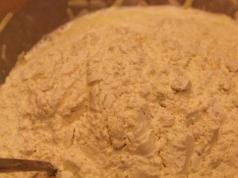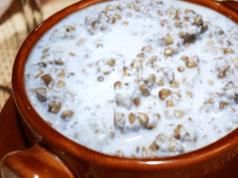A bottle of mineral water for 120 rubles, but not Perrier. In Russia, the famous Georgian mineral water has risen sharply in price. Why are the prices for Borjomi so high?
Today in Moscow "Borjomi" in a glass bottle of 0.5 liters retails for about 120 rubles. For comparison, the price of Russian mineral water of local brands starts from 25 rubles for the same bottle. And for 50 you can already buy "Narzan" or "Essentuki", which are in demand throughout Russia. Why is Borjomi so expensive here? Timur Nigmatulin, an analyst at the Finam investment holding, says.
Timur NigmatulinAnalyst at Finam Investment Holding“The cost of products on the store shelf, conditionally in Moscow, includes large logistics costs. By itself, a bottle of Borjomi is an inconvenient product, from the point of view of logistics, i.e. the ratio of the price of a product to its weight, the price of a product to its volume does not allow moving this product without a significant markup. Thus, I do not think that the prices that are currently observed in Georgia are possible, conditionally, on the counter in Moscow.”
However, this does not explain in any way the fact that in other countries where Borjomi is supplied, its prices are lower than in Russia. In Kazakhstan - about 96 rubles, in Latvia - about 80, in Ukraine - about 60. The lowest price of Borjomi, of course, is in Georgia itself - about 19 rubles. These are retail prices for the same glass bottle of 0.5 in terms of Russian currency. What is the reason for this distribution of prices across countries? Georgian political scientist Gela Vasadze argues.
Gela Vasadze Georgian political scientist“I know that Borjomi is supplied by many countries, especially when there was an embargo on the Russian market, then Borjomi really made a breakthrough. Another thing is that we are not talking about deliveries in general, we are talking about volumes. The volumes are quite small. As for the difference, what can I tell you about this - the damned capitalists are profiting. You see, “Borjomi” today belongs to a Russian company, so all questions should be directed to them, why they sell “Borjomi” for such a price in their own market.”
But even those Russians who love Borjomi are gradually starting to give it up. There is no point in overpaying for Georgian mineral water when there is almost the same Russian water on store shelves, but at least half the price.
Today in Moscow "Borjomi" in a glass bottle of 0.5 liters retails for about 120 rubles. For comparison, the price of Russian mineral water of local brands starts from 25 rubles for the same bottle. And for 50 you can already buy "Narzan" or "Essentuki", which are in demand throughout Russia. Why is Borjomi so expensive here? Timur Nigmatulin, an analyst at the Finam investment holding, says.
Timur Nigmatulin
Analyst at Finam Investment Holding
“The cost of products on the store shelf, conditionally in Moscow, includes large logistics costs. By itself, a bottle of "Borjomi" is an inconvenient product, from the point of view of logistics, i.e. the ratio of the price of a product to its weight, the price of a product to its volume does not allow moving this product without a significant markup. Thus, I do not think that the prices that are currently observed in Georgia are possible, conditionally, on the counter in Moscow.”
However, this does not explain in any way the fact that in other countries where Borjomi is supplied, its prices are lower than in Russia. In Kazakhstan - about 96 rubles, in Latvia - about 80, in Ukraine - about 60. The lowest price of Borjomi, of course, is in Georgia itself - about 19 rubles. These are retail prices for the same glass bottle of 0.5 in terms of Russian currency. What is the reason for this distribution of prices across countries? Georgian political scientist Gela Vasadze argues.
Gela Vasadze
Georgian political scientist
“I know that Borjomi is supplied by many countries, especially when there was an embargo on the Russian market, then Borjomi really made a breakthrough. Another thing is that we are not talking about deliveries in general, we are talking about volumes. The volumes are quite small. As for the difference, what can I tell you about this - the damned capitalists are profiting. You see, “Borjomi” today belongs to a Russian company, so all questions should be directed to them, why they sell “Borjomi” for such a price in their own market.”
The manufacturer of the famous Georgian mineral water is IDS Borjomi Georgia, which is controlled by Alfa Group. The structures of Mikhail Fridman completed the purchase of the Borjomi manufacturer from the heirs of Badri Patarkatsishvili in the 13th year. It was not possible to promptly clarify the issue of pricing for Borjomi in the IDS edition of Business FM itself.
Basically, Georgian mineral water is supplied to the countries of the former Soviet Union. There is no Borjomi in Western Europe; in the States, only stores oriented to people from the former USSR sell it. The Borjomi brand was never able to compete with Perrier or Evian. But in Russia, many people remember and love Georgian mineral water, says Ivan Merkulov, president of the National Association of Regional Products.
Ivan Merkulov
President of the National Association of Regional Products
“There is also an internal highest degree of trust in the brand. Borjomi has occupied very important positions since Soviet times, serious positions, and this is a story that affects us as a consumer, and the perceived value is formed accordingly. Therefore, yes, water can cost that much, because Perrier, relatively speaking, or some other waters that can even be bottled somewhere in the Moscow region, also have a cost due to the brand value. I would really like Borjomi to remain as an example of how successful a regional brand, a country brand can be.”
But even those Russians who love Borjomi are gradually starting to give it up. There is no point in overpaying for Georgian mineral water when there is almost the same Russian water on store shelves, but at least half the price.
Today in Moscow "Borjomi" in a glass bottle of 0.5 liters retails for about 120 rubles.For comparison, the price of Russian mineral water of local brands starts from 25 rubles for the same bottle. And for 50 you can already buy "Narzan" or "Essentuki", which are in demand throughout Russia. Why is Borjomi so expensive here? Timur Nigmatulin, an analyst at the Finam investment holding, says.
Timur Nigmatulin
Analyst at Finam Investment Holding
“The cost of products on the store shelf, conditionally in Moscow, includes large logistics costs. By itself, a bottle of "Borjomi" is an inconvenient product, from the point of view of logistics, i.e. the ratio of the price of a product to its weight, the price of a product to its volume does not allow moving this product without a significant markup. Thus, I do not think that the prices that are currently observed in Georgia are possible, conditionally, on the counter in Moscow.”
However, this does not explain in any way the fact that in other countries where Borjomi is supplied, its prices are lower than in Russia. In Kazakhstan - about 96 rubles, in Latvia - about 80, in Ukraine - about 60. The lowest price of Borjomi, of course, in Georgia itself is about 19 rubles. These are retail prices for the same glass bottle of 0.5 in terms of Russian currency. What is the reason for this distribution of prices across countries? Georgian political scientist Gela Vasadze argues.
Gela Vasadze
Georgian political scientist
“I know that Borjomi is supplied by many countries, especially when there was an embargo on the Russian market, then Borjomi really made a breakthrough. Another thing is that we are not talking about deliveries in general, we are talking about volumes. The volumes are quite small. As for the difference, what can I tell you about this - the damned capitalists are profiting. You see, “Borjomi” today belongs to a Russian company, so all questions should be directed to them, why they sell “Borjomi” for such a price in their own market.”
The manufacturer of the famous Georgian mineral water is IDS Borjomi Georgia, which is controlled by Alfa Group. The structures of Mikhail Fridman completed the purchase of the Borjomi manufacturer from the heirs of Badri Patarkatsishvili in the 13th year. It was not possible to promptly clarify the issue of pricing for Borjomi in the IDS edition of Business FM itself.
Basically, Georgian mineral water is supplied to the countries of the former Soviet Union. There is no Borjomi in Western Europe; in the States, only stores oriented to people from the former USSR sell it. The Borjomi brand was never able to compete with Perrier or Evian. But in Russia, many people remember and love Georgian mineral water, says Ivan Merkulov, president of the National Association of Regional Products.
Ivan Merkulov
President of the National Association of Regional Products
“There is also an internal highest degree of trust in the brand. Borjomi has occupied very important positions since Soviet times, serious positions, and this is a story that affects us as a consumer, and the perceived value is formed accordingly. Therefore, yes, water can cost that much, because Perrier, relatively speaking, or some other waters that can even be bottled somewhere in the Moscow region, also have a cost due to the brand value. I would really like Borjomi to remain as an example of how successful a regional brand, a country brand can be.”
But even those Russians who love Borjomi are gradually starting to give it up. There is no point in overpaying for Georgian mineral water when there is almost the same Russian water on store shelves, but at least half the price.
"Borjomi" - mineral water with excellent palatability and unique properties useful for the health of adults and children. As we have already said, such a mineral water has been produced in Georgia for 125 years and over all these years many people have fallen in love not only in Europe, but also in the world. People also love Borjomi in Belarus, where, according to statistics, the demand for mineral water is growing every year. And since there is interest, it means that the number of questions related to the famous water is growing. We asked representatives of Georgian Glass & Mineral Water Co. to answer them. N.V., which essentially revived the production of the beloved mineral water in the 1990s.
1. What is the secret of the unique composition of Borjomi?
"Borjomi" - water, which is of volcanic origin. It is saturated with unique anions and 60 types of minerals.
2. Is it true that the composition of Borjomi has not changed for 125 years?
The composition of Borjomi has remained unchanged for more than a hundred years (this fact has been confirmed by numerous studies) and comes to us in its original form thanks to a special technology of carbon dioxide enrichment.
3. Is it true that "Borjomi" has the ability to cleanse the body?
The special mineral composition of Borjomi water is excellent for complex cleansing of the body from toxins and harmful substances, prevention of diseases of the digestive system, and helps to maintain immunity.
4. What is the difference between "Borjomi" in a plastic and glass bottle?
Both in glass and plastic packaging you will find the same Borjomi water. Plastic packaging was introduced for convenience of consumption, so that you can take it with you when you are going out of town, to the country house, for a walk, etc.
5. Why is CO 2 added to Borjomi?
By itself, mineral water comes to the surface already saturated with a small amount of carbon dioxide. However, in order to save chemical composition(in particular, a unique complex of ions and anions created by nature) when bottling mineral water, additional carbon dioxide is used.
6. What temperature should you drink Borjomi?
7. Is there a "light version" of mineral water?
Previously, this was produced, but today it is not produced, since in our time the production enterprises of Borjomi produce classic mineral water.
8. Are preservatives used to store Borjomi?
No preservatives are used, while bottling "Borjomi" is saturated with natural carbon dioxide - this is the only human intervention in the pristine nature of this water.
9. Is it possible to drink "Borjomi" as table water, will this cause salt deposits?
Traditionally, Borjomi is used as a table drink. Calcium in "Borjomi" is less than 100 mg / l, which is acceptable for daily use, since the risk of salt deposits only occurs if the calcium content exceeds 200 mg/l.
Subject to certain schemes and conditions for taking "Borjomi" is an excellent adjuvant in the treatment of diseases of the stomach and intestines, kidneys, liver, urinary and respiratory tract, with impaired metabolism. With prolonged consumption of Borjomi mineral water, the feeling of heaviness in the stomach, heartburn disappears, and overall well-being improves. "Borjomi" is recommended to drink at high physical exertion, when working in a hot climate, as well as in the case of living in high mountainous areas. In any case, when using Borjomi for medical purposes, it is imperative to consult with your doctor and follow his recommendations.
11. How long can you store Borjomi?
12. How does Borjomi get to Belarus?
All products supplied to the territory of Belarus are bottled directly in Georgia at the facilities of Borjomi enterprises. Bottled water is necessarily equipped with all means of protection and is tested for compliance with applicable international standards.
13. What distinguishes "Borjomi" from others mineral waters?
Its unique composition, which includes more than 60 trace elements of volcanic origin, including sodium bicarbonate, with a relatively low content of chlorides and the almost complete absence of sulfates. Rising through the thickness of rocks from a depth of 8000 meters, "Borjomi" is naturally saturated with these microelements, which help to cleanse the body, acting as a "soul from the inside."

Borjomi National Park
14. How does the volcanic origin of minerals differ from non-volcanic?
Minerals of volcanic origin are distinguished by the fact that they are formed in the bowels of the Earth under conditions of high temperatures and pressure.
15. Where is Borjomi bottled - in Georgia or in exporting countries?
"Borjomi" is bottled only in Georgia, at the plant, which is located next to the source (legal requirement for the production of mineral waters). Delivery of "Borjomi" to retail outlets in Georgia, as well as to more than 40 exporting countries, is carried out only in packaged form (in glass and / or PET packages).
16. Can "Borjomi" from different bottles be different in taste?
The taste of Borjomi is affected by the temperature of the water. If one bottle of water is placed in a cold place, and another is heated in the sun, then the taste of water in each of the bottles will seem different.
17. Can Borjomi sources run out?
The springs have been known to people for thousands of years, and industrial mining has been going on for 125 years. In the 1980s, about 400 million bottles were produced per year. Today, the Borjomi sparing production mode is used (the production level is about 60% of the possible).
Please rate this article by choosing the desired number of stars
Site readers rating: 5 out of 5(5 ratings )
Noticed an error? Select the text with the error and press Ctrl+Enter. Thank you for your help!
Section Articles
April 17, 2016 On April 7, Minsk restaurant Renaissance hosted a real celebration under the auspices of the Department of Tourism and Resorts of Adjara - according to the organizers, the first of a series of events designed to popularize holidays in sunny Georgia among Belarusians...
October 19, 2015 If Georgia is a paradise for tourists, then the Batumi Botanical Garden is the promised land for florists, dendrologists, carpologists and other botanists. But even if you remember only stamens and pistils from the school course, it is undoubtedly worth setting aside a day to visit Mtsvane Kontskhi (Green Cape), on the slopes of which this unrealistically beautiful and picturesque garden is spread ...
September 21, 2015 The smells of the sea, wine, Turkish coffee, Adjarian khachapuri and hundreds of exotic plants are intertwined in Batumi, thoughts get confused here and you want to stop the famous astronomical clock on the building of the National Bank in order to have time to breathe, see enough, dance and just enjoy life...
September 07, 2015 Tbilisi is the capital and largest city of Georgia. Located on the banks of the Kura (Mtkvari) River. The name of the city is associated with warm sulfur springs, and this is really a warm city - in the literal and figurative sense. Our journalist Ekaterina Morgol suggests 15 must-see places in Tbilisi...
August 30, 2015 write about Georgian cuisine a thankless job. All the same, one cannot convey all the aromas of fresh herbs, shades of spices, intonations with which Georgians praise dishes and make toasts at their notorious feasts. Therefore, regard this text as a small cheat sheet that will help to distinguish achma from mchadi and, if necessary, show off knowledge in the field of khachapur studies. So, what do you need to do in Georgia?..








